Ian Livingstone and Steve Jackson formed Games Workshop in 1975, just in time for two cultural phenomenons. The first was D&D, for which they became the sole UK distributor. While the second was punk, which infused their Warhammer tabletop range with a manic energy and nihilism that continues to ensnare teenage minds to this day.
Looking for a fantasy adventure? Try one of these fantastic RPGs.
Later, both founders would go on to separately shape the UK videogame industry. Jackson became a director at Lionhead, overseeing the likes of Fable and cementing Guildford as the heart of the country’s development scene. And as product acquisition director at Eidos, it was Livingstone who first signed Tomb Raider and Hitman. He then went on to co-author the ‘Next Gen’ report – a document that helped convince the UK government to incorporate programming into education. An important legacy by any measure.
But a funny thing has happened. In recent years, even Livingstone’s non-digital exploits have begun seeping into the fabric of PC gaming. Though you might not have known his name until two paragraphs ago, there is a very good chance his work has found its way into your Steam library, one way or another.
One reason for that recent shift is a shake-up of Games Workshop’s licensing strategy. At one time, the company tended to license, say, all of Warhammer 40k to a single publisher. That led to some success – think THQ and Dawn of War – but left many of the more fantastical corners of their worlds untouched.
In the last few years they have instead portioned out specific ideas to individual studios and mid-level publishers. That change has produced a plethora of Warhammer games on Steam: a number of duds, but some unexpected greats, too. The crunchy board game adaptation, Blood Bowl 2. The Left 4 Dead-like fantasy shooter, Vermintide. The tactical squad battler, Mordheim: City of the Damned.
There is another reason for Livingstone’s recent resurgence in PC gaming, though, and that is why we have him on the phone today: Fighting Fantasy. He and Jackson have been writing the hugely successful series of choose-your-own-adventure books for 35 years.
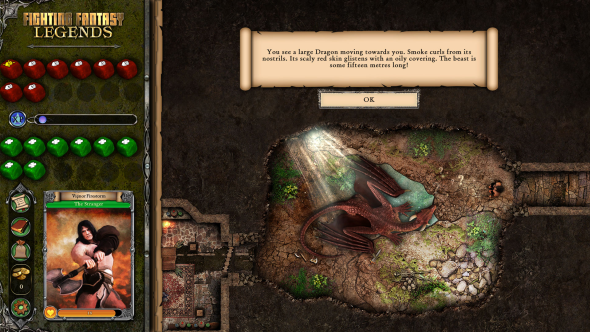
“The difference between Fighting Fantasy and a traditional book, of course, is that it’s an interactive game book in which you are the hero,” Livingstone tells us. “It’s a branching narrative with a game system attached to it, whereas most books are a passive experience.
“Because of that empowerment, of children making choices back in the day, I think that really resonated with their imaginations. In fact, I’ve been told it led to many people thinking they wanted to join the games industry.”
To be specific: Dark Souls creator Hidetaka Miyazaki used to read Fighting Fantasy. A designer on The Witcher once played with scenarios laid out in Fighting Fantasy books. “I’m only just hearing about them now,” Livingstone says. “Because they were in 30 languages, the influence was quite wide.”
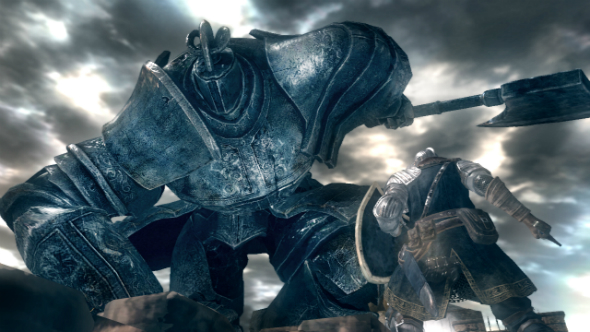
More directly, Fighting Fantasy games are beginning to crop up on Steam, too. That stems in part from a desire fans have expressed to Livingstone and Jackson, to see its world “in more of a joined-up fashion.”
“For Steve Jackson and I, Fighting Fantasy is our creation and we like to see our IP manifested in many ways,” Livingstone explains. “We give creative license to embellish and enhance some of the experiences because we were limited by the format.”
With Livingstone and Jackson’s blessing, developers have started to adapt gamebooks in highly ambitious ways. Tin Man Games, a studio behind a number of straight choose-your-own-adventure adaptations on mobile, last year put out The Warlock of Firetop Mountain – a brave mish-mash of tabletop-esque dioramas, RPG choices, and unusual turn-based combat.
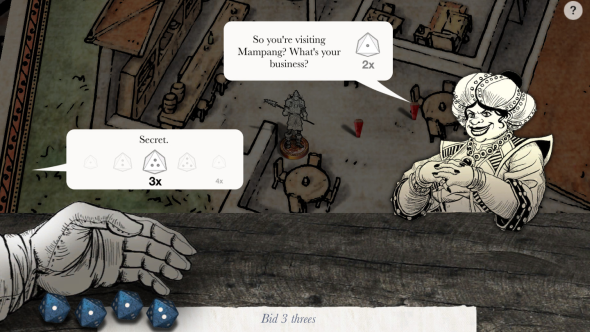
Inkle, the outfit behind 80 Days, cut their teeth making wordy RPGs out of Jackson’s Sorcery! series. And now Nomad, the developers behind the highly faithful Talisman games, have made Fighting Fantasy Legends: an amalgam of roguelike, RPG, and card game.
“People would pester me for years and say they actually wanted to walk around the streets of Port Blacksand, the main visiting point of City of Thieves,” Livingstone says of the genesis of Fighting Fantasy Legends. “So we were chewing all that over.”
The developers working on these projects are squeezing more than nostalgia out of Fighting Fantasy. So what latent potential are they finding in these decades-old gamebooks?
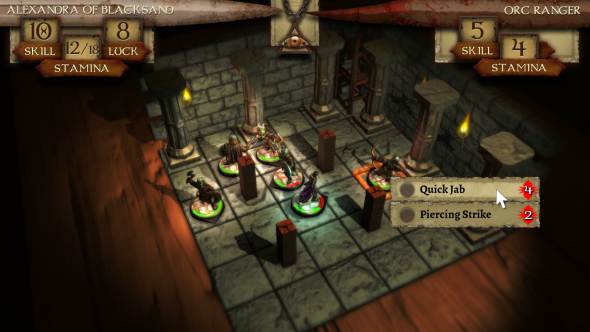
“Making decisions has always existed in games, even if it hasn’t been presented as a question with two or three possible answers,” Nomad design director Carl Jackson says. “But I think the way that game books and interactive fiction is going now, you’re never quite sure if you’ve made the right decision. You realise with each choice you make you’re going down a certain path, and you don’t know where the other paths may have led.”
In other words, where videogames often telegraph which decision is the right one – either deliberately or because they underestimate the savviness of their players – Fighting Fantasy choices are often total mysteries. This is thanks in no small part to Livingstone’s bloodthirstiness. He speaks fondly of luring readers to early deaths with “the rose petals leading to the poison spikes.”
“I try and make the choices as excruciating as possible, and gloss up the one that’s going to lead to people’s doom,” Livingstone cackles. “I like to make sure there’s lots of things to find along the way. A lot of them are red herrings and I often get slated for filling up people’s backpacks with a load of junk. But it makes me want to do it even more.”
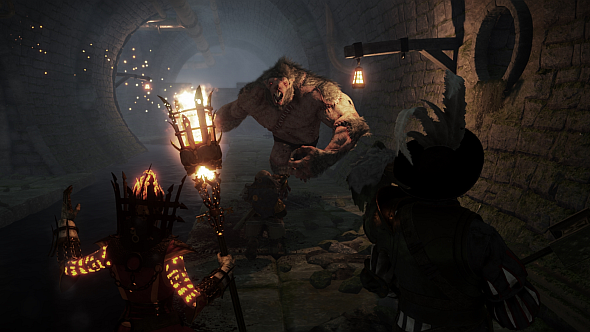
This is more or less the opposite of accepted game design wisdom, which holds that you should never be given a reason to blame the designer for your misfortune. Then again, Fighting Fantasy’s success is founded on something else traditionally frowned upon in games: large chunks of flowery prose.
Perhaps what this new wave of gamebook-influenced studios is doing right is relying on the power of words, just as Livingstone and Jackson did before them. After all, the imagination has an unlimited special effects budget.
“My influence was Tolkien and Dungeons & Dragons, and I remember having a conversation with [D&D co-creator] Gary Gygax, who I knew very well,” Livingstone recalls. “He said that he preferred radio to television because the pictures were better.”
